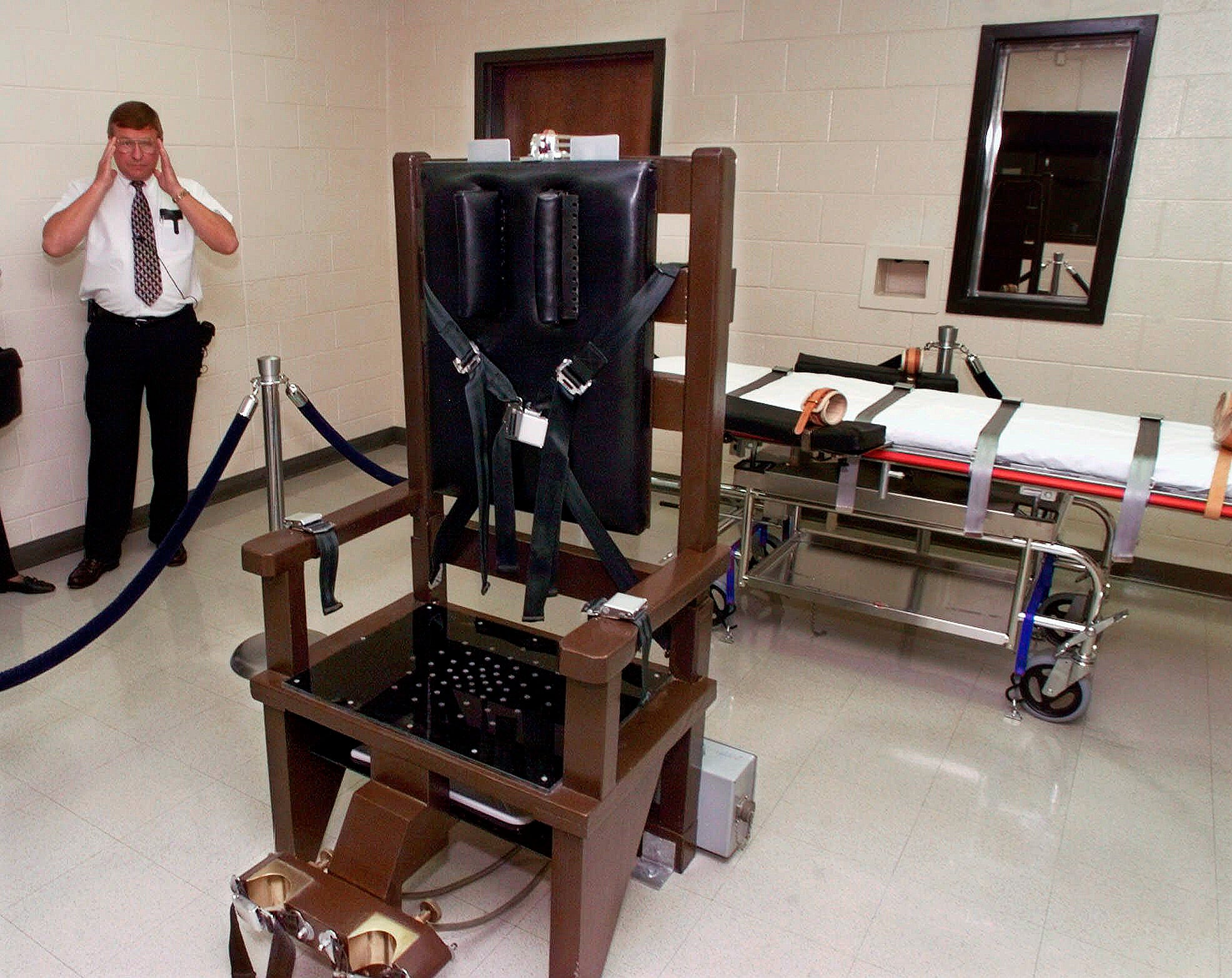Tennessee corrections chief says new process for executing inmates will be completed by end of year
Tennessee’s corrections chief says the department is expected to unveil a new process for executing inmates by the end of the year

Your support helps us to tell the story
From reproductive rights to climate change to Big Tech, The Independent is on the ground when the story is developing. Whether it's investigating the financials of Elon Musk's pro-Trump PAC or producing our latest documentary, 'The A Word', which shines a light on the American women fighting for reproductive rights, we know how important it is to parse out the facts from the messaging.
At such a critical moment in US history, we need reporters on the ground. Your donation allows us to keep sending journalists to speak to both sides of the story.
The Independent is trusted by Americans across the entire political spectrum. And unlike many other quality news outlets, we choose not to lock Americans out of our reporting and analysis with paywalls. We believe quality journalism should be available to everyone, paid for by those who can afford it.
Your support makes all the difference.Tennessee's corrections chief said Wednesday that the department expects to unveil a new process for executing inmates by the end of the year, signaling a possible end to a yearslong pause due to findings that several inmates were put to death without the proper testing of lethal injection drugs.
“We should have our protocols in place by the end of this calendar year or at the first week or two of January,” Commissioner Frank Strada told lawmakers during a correction hearing. “We’ve been working with the attorney general’s office on writing those protocols to make sure that they’re sound.”
Strada didn't reveal any details about the new process, only acknowledging that the effort had taken a long time because of the many lawyers working on the issue to ensure it was “tight and right and within the law.”
The commissioner's comments are the first public estimate of when the state may once again resume executing death row inmates since they were halted in early 2022.
Back then, Republican Gov. Bill Lee put a hold on executions after acknowledging the state had failed to ensure its lethal injection drugs were properly tested. The oversight forced Lee in April to abruptly halt the execution of Oscar Smith an hour before he was to have been put to death.
Documents obtained through a public records request later showed that at least two people knew the night before that the lethal injection drugs the state planned to use hadn’t undergone some required testing.
Lee eventually requested an independent review into the state’s lethal injection procedure, which was released in December 2022.
According to the report, none of the drugs prepared for the seven inmates put to death since 2018 were tested for endotoxins. In one lethal injection that was carried out, the drug midazolam was not tested for potency either. The drugs must be tested regardless of whether an inmate chooses lethal injection or electrocution — an option allowed for inmates if they were convicted of crimes before January 1999.
The report also rebuked top Department of Correction leaders for viewing the “the lethal injection process through a tunnel-vision, result-oriented lens” and claimed the agency failed to provide staff “with the necessary guidance and counsel needed to ensure that Tennessee’s lethal injection protocol was thorough, consistent, and followed.”
The department has since switched commissioners, with Strada taking over in January 2023. Its top attorney and the inspector general were fired that month.
Tennessee's current lethal injection protocol requires a three-drug series to put inmates to death: the sedative midazolam to render the inmate unconscious; vecuronium bromide to paralyze the inmate; and potassium chloride to stop the heart.
The state has repeatedly argued that midazolam renders an inmate unconscious and unable to feel pain. But the independent report showed that in 2017 state correction officials were warned by a pharmacist that midazolam “does not elicit strong analgesic effects," meaning “the subjects may be able to feel pain from the administration of the second and third drugs.”